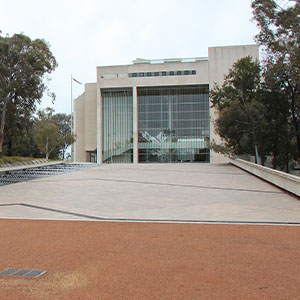Procedural History
Four sets of class actions were brought against Downer EDI Ltd over allegations of misreporting revenue from a power contract with AusNet between 1 April 2020 and 31 December 2022.
Three proceedings were commenced in the Federal Court of Australia, and one in the Supreme Court of Victoria (Kajula Proceeding). Justice Delany made orders on 28 August 2023, consolidating three of the proceedings and ordering a permanent stay of the Kajula Proceeding.
His Honour found that the consolidated proceeding was ‘finely balanced’ and ‘had much in common’ with the Kajula Proceeding (see [47]). His Honour considered cooperation between the three law firms leading to consolidation as a material factor in granting carriage, highlighting that it indicated “a greater level of experience on the part of the law firms involved in the consolidated proceeding than the law firm representing Kajula” (at [58]).
His Honour noted that consolidation aligned with the Civil Procedure Act 2010 (Vic), which aims to ensure the efficient conduct of court business (at [63]). Kajula applied for leave to appeal his Honour’s decision. The Court of Appeal ultimately dismissed Kajula’s application, finding that “none of the proposed grounds have a real prospect of success” (at [9]).
Proposed Grounds of Appeal
Kajula in substance argued that cooperation was not an identified factor for multiplicity disputes (see [97]). It argued that by considering this factor, Delany J overlooked other important aspects, such as duplicative costs between the consolidated law firms (see [49]), which supported the granting of carriage to Kajula. Their Honours described grounds two to five of Kajula’s appeal as “in substance, ‘particulars’ of the challenge in proposed ground 1” (see [4]-[6]).
House v The King Standard
The Court of Appeal held that the rule established by the High Court in House v The King (1936) 55 CLR 499 applied because of the ‘discretionary’ nature of multiplicity disputes, meaning these types of disputes “tolerated a range of potential outcomes” (see [72]-[73]; [75]); parties are therefore required to establish prejudice flowing from the primary judge’s decision.
Cooperation vs Competition
Their Honours defined cooperation as “representative plaintiffs and their lawyers in competing group proceedings working together in order to resolve or reduce the matters for determination in a multiplicity dispute in a timely and cost-effective manner” (at [111]).
The Court of Appeal held that cooperation is a valid factor in multiplicity disputes because it furthers the purpose of the CP Act (at [108] and [114]).
Kajula’s main argument was that Delany J’s judgment created a precedent which ‘elevated’ cooperation in what is intended to be a multifactorial analysis, having the result of “substantially undermin[ing] competition among proponents to class actions to the detriment of group members” (see [90]).
This argument was rejected by the Court of Appeal (at [91]) which held that competition is not an ‘apt’ label in this context, as multiplicity disputes are “far from a truly competitive process” (at [132]).
Despite this finding, the Court of Appeal held that the competitive influence of one party on another's proposal can be relevant in a multiplicity dispute. For instance, how a party and their legal advisers shaped a counterproposal and the overall benefit to class members (see [133]). Kajula argued it faced injustice “… in circumstances where it was the one to put forward the most competitive proposal, which the Lidgetts simply matched” (at [86]). Although this benefited class members, the Court of Appeal noted that the primary judge considered Kajula’s competitive influence at [139] of his reasons, but his Honour “… concluded that this was not an influential factor in reaching his ultimate conclusion” (at [140]).
Caution on Multiplicity Appeals
In dismissing Kajula’s application, the Court of Appeal said there are ‘good policy reasons’ why an appellate court should not intervene in a multiplicity determination, as these are inherently “matters of practice and procedure, and case management” (at [81]).
Their Honours also encouraged trial judges to make ‘commonsense’ and ‘expeditious’ decisions, and discouraged parties from making ‘distracting satellite applications’ which the Court found are ‘expensive’ and contrary to the purpose of the CP Act (see [178]).
Kajula Pty Ltd v Downer EDI Ltd [2024] VSCA 236
Victorian Court of Appeal | Macaulay, Lyons and Orr JJA | 15 October 2024
Applicant’s Solicitors: Quinn Emanuel Urquhart & Sullivan
Second and Third Respondents’ Solicitors: Maurice Blackburn
Funder: N/A
We're here to help
Contact us today
Learn more about our class actions work
We're Australia's leading class action practice, and we've obtained more than $5 billion in settlements for our clients.
Easy ways to get in touch
We are here to help. Give us a call, request a call back or use our free claim check tool to get in touch with our friendly legal team. With local knowledge and a national network of experts, we have the experience you can count on.
Office locations
We’re here to help. Get in touch with your local office.
Select your state below
- VIC
- QLD
- NSW
- WA
- ACT
- SA
- TAS
- NT
We have lawyers who specialise in a range of legal claims who travel to Australian Capital Territory. If you need a lawyer in Canberra or elsewhere in Australian Capital Territory, please call us on 1800 675 346.
We have lawyers who specialise in a range of legal claims who travel to Tasmania. If you need a lawyer in Hobart, Launceston or elsewhere in Tasmania, please call us on 1800 675 346.


